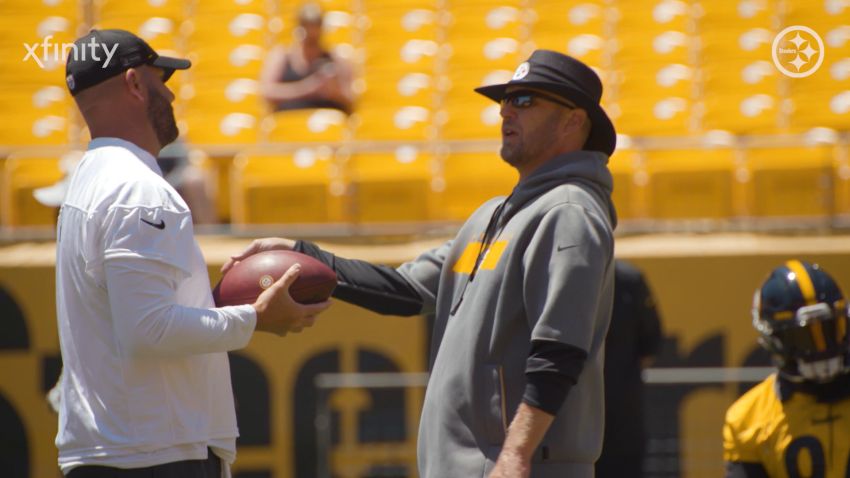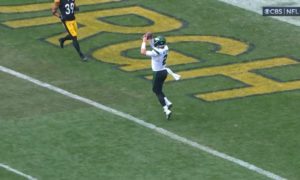While it’s hard to say what the plan would have been otherwise, the reasons cited by the Pittsburgh Steelers for quarterback Ben Roethlisberger playing in last night’s game primarily revolved around establishing a comfort level between the quarterback and the team’s new play-caller, Matt Canada.
Originally hired last season to be the quarterbacks coach, Canada was promoted to offensive coordinator this season. He has extensive experience running offenses at the college level, but this is his first such assignment in the NFL, and both he and Roethlisberger lack familiarity in this regard, so assessing their working relationship was important. And Roethlisberger told reporters after the game that he felt it went well.
“No real play-clock issues”, he noted, with Canada up in a booth, rather than the sideline. “I took a timeout once, not because of a play-clock issue, but because of the play that we had called, I think [because] of their defense, we wouldn’t have had anything, so just took a timeout for that reason”.
For those who may not know, play calls are communicated to the quarterback via a speaker inside the helmet (though they can also be communicated through signals). The speaker turns off when the play clock runs down to 15 seconds, so if the play is not in by then, an alternative solution has to be found, which could include just calling a timeout.
“All in all, I felt like I had plenty of time when we broke the huddle, so I think it went well”, Roethlisberger said. “I wish sometimes our defense would give us more time on the sideline so I could communicate through all the pictures, but it’s a good problem”.
The first-team offense played three drives in total, including an opening three-and-out, which featured a false start on the first play and a dropped would-be conversion on 3rd and 4. The second and third possessions for the Roethlisberger-led offense, however, came away with seven points apiece on field-spanning drives, the first 82 yards and the second 58.
The offense became less efficient as Mason Rudolph and Dwayne Haskins entered the game, beginning late in the first quarter, though they still moved the ball. Rudolph’s first two drives traversed 55 and 93 yards before stalling and settling for a field goal.
In all, in fact, the offense scored on all but their first and final possession, the latter of which was simply an end-of-game, run-out-the-clock situation. They accumulated 401 yards of offense while putting up 26 points without the benefit of any defensive takeaways, with 20 first downs and going 8-for-15 on third down.








